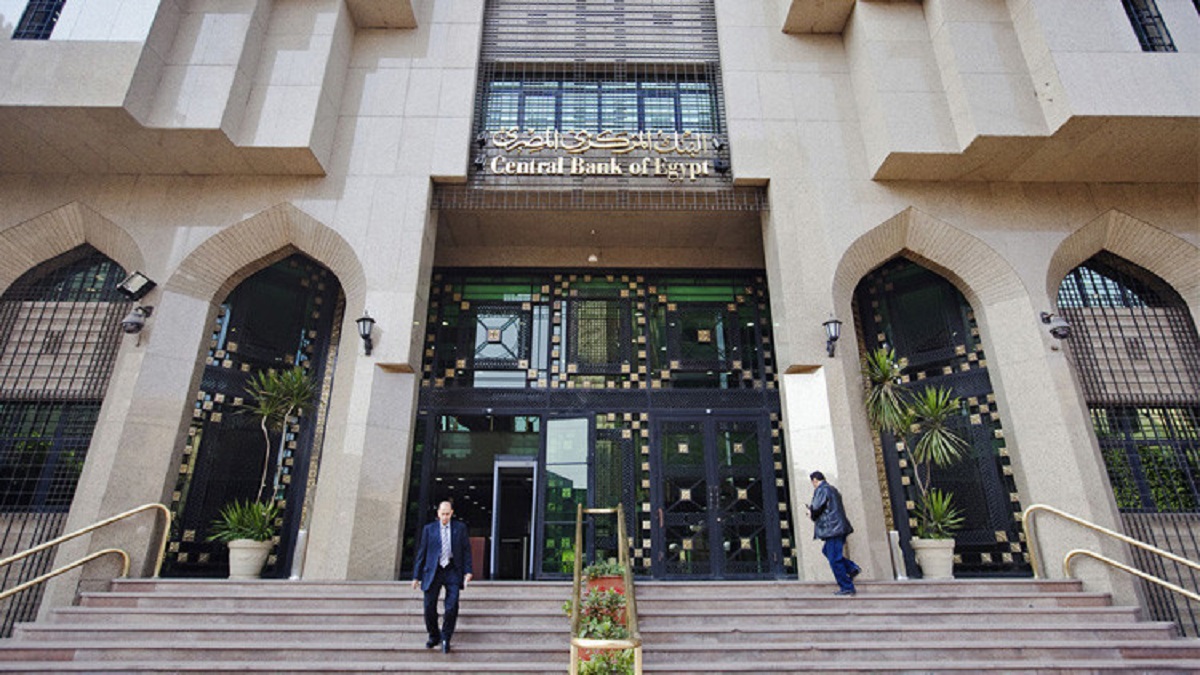President Mohamed Morsy’s decision to appoint Hesham Ramez as the new Central Bank of Egypt chief in January was unsurprising to many. Rumors of Farouk Oqda’s possible resignation had been swirling for months, despite the fact that the Supreme Council of the Armed Forces had renewed Oqda’s contract for four years in November 2011.
Now, industry insiders are hopeful Ramez, the former CEO of the Commercial International Bank, will follow in his predecessor's footsteps and protect the institution's autonomy as well as continue Oqda's legacy of modernizing Egypt's banking sector during his nine years at the helm.
In Egypt, where many institutions are hindered by red-tape, redundant bureaucracy and centralized decision making, experts frequently cite the Central Bank as a homegrown success story — a once ineffective body that emerged as a largely independent, modern institution in just a few short years, thanks to Oqda's leadership.
Before, bank officials and experts say the Central Bank boasted outdated filing systems, relied solely on hard copy records and employed an inefficient administration.
To make matters worse, in 2003 former President Hosni Mubarak amended regulations governing the Central Bank in 2003 to limit its independence and authority in managing the exchange rate and monetary policy.
“The bank was in conflict with the government,” says past Central Bank governor Mohamed Abdel Hafiz, who recalls debating the matter with his boss Mohamed Abol al-Oyoon, who headed the bank at the time. “Our role was marginalized to administrative work.”
It was a situation that Abdel Hafiz says called for a serious change.
A new era
It was at this critical juncture that Oqda took over as chief. Oqda had already established himself as a pioneer in the banking industry in his roles as the managing director for Egyptian leasing firm Incolease, vice president of the Bank of New York Leasing Corporation and adviser to the Central Bank governor from 1998–2001.
Abdel Aziz remembers the frank exchange between the new governor and the Cabinet and how hard Oqda fought to regain the bank’s independence.
According to Abdel Aziz, Oqda told members of the Cabinet that he would resign immediately if they infringed on the bank's independence in any way.
Soon after, Oqda set in motion a number of Central Bank reforms designed to modernize the institution and began pushing for an overhaul of the ailing and mismanaged public banking sector.
His legacy can be summed up by three pivotal events: the stabilization of the pound and a crackdown on black-market currency traders, the revitalization and modernization of the Central Bank and state financial institutions as well as reforms that boosted sagging banking liquidity, paid-in capital and foreign reserves.
Oqda was very particular about hiring highly qualified people, which he believed would lead to "organic” growth and development within the institution, says a Central Bank staffer speaking on condition of anonymity.
The source lists Rania al-Mashat, sub-governor for the monetary policy unit, and Niddal Asser, sub-governor for investment and foreign relations, as examples of trailblazers who “bring a sense of professionalism and leadership that was not prevalent before Oqda.”
Unlike many government officials, Oqda did not run a one-man show, adds Abdel Hafiz. Instead, he worked to nurture employees' competence.
“There was no one person behind the wheel,” Abdel Hafiz says. Oqda regularly met with Ramez, Abdel Hafiz and former Deputy Governor Tareq Amer over policy reform and strategic planning. “The points we agreed upon were implemented after,” he explains. “Everyone was involved.”
Passing on the torch
Ramez is largely expected to follow Oqda’s example in this respect. Abdel Hafiz says the two are thought of as "maestros."
“They don’t hold any instruments, but navigate the entire orchestra,” he says.
Ramez worked with Oqda for more than nine years, and industry experts say there was no better candidate for the position.
Karim Helal, CEO of CI Capital and seen by many as an investment bank visionary, told Egypt Independent that “[Ramez] is not the best choice. He is the only choice,” after the announcement was made.
“Ramez’s strong character, professional banking background and the major role he played during his time as deputy governor make him the best-positioned for the job,” Helal added.
Some had worried that Morsy’s ability to unilaterally nominate the next Central Bank governor would risk the institution's independence, but Ramez's selection allayed those fears.
“There was growing fear within the Central Bank staff about the Islamization of the institution,” the Central Bank source says. “We were relieved to find out Ramez had been appointed.”
Ramez has more than 25 years of experience in the banking industry and held posts in areas ranging from investment banking to risk management. He also participated as a board member for the Egyptian Financial Supervisory Authority, the Central Bank's Monetary Policy Committee, the Egyptian Stock Exchange and the American Business Council.
Ramez’s move to CIB, where he began as vice chairman and managing director, was in part negotiated by Oqda, according to the Central Bank source.
Going forward
Although expected, Oqda’s resignation comes at a critical time for Egypt. Some claim he was an integral part of country’s ongoing loan negotiations with the International Monetary Fund.
But Oqda seemed confident of Egypt's recovery during the news conference marking his resignation in January and said he was “leaving the institution in safe hands.”
Abdel Hafiz says there was little risk of the institution being co-opted or falling into inexperienced hands.
“Knowing Ramez, I’m aware that he is accepting the job while making sure the Central Bank will maintain the independence it needs to have,” Helal says.
Many bankers say Ramez will follow through on Oqda’s policies.
“I don’t think Ramez will do any dramatic changes at this point,” Helal says. “The main issue we have now is obviously navigating troubled waters, so that requires a strong and stable hand. I don’t think there will be any radical amendments in the near future.”
He is also unlikely to make any major staffing changes. Mashaat, the monetary policy unit sub-governor, regularly attended IMF meetings with Oqda, the Central Bank source said. Under Ramez, Mashaat is expected to carry on with that role.
Second place
The runner-up for the position is largely thought to have been Amer, who worked at the Central Bank from 2003 to 2008. He most recently held the position of CEO of the National Bank of Egypt, which some speculate was Oqda's doing to ensure his management philosophy was represented in publicly owned banks.
Following the announcement of Ramez’s appointment, Amer resigned.
“Eight years in the public banking field is enough,” state news agency MENA quoted Amer as saying.
Helal said Amer is a “highly respected and successful banker,” but that Ramez is better able to deal with issues surrounding foreign reserves, Egypt's currency and the IMF talks.
“[Ramez] is a well-known figure that the international market needs to see at this point,” Helal explained.



